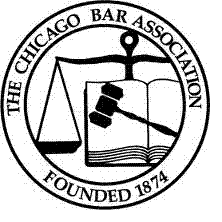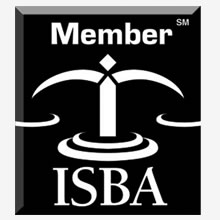2017 Update -- the Wonder Dog
Update, February 25, 2017:
The U.S. Supreme Court on Wednesday ruled that
the family of a Michigan girl with cerebral
palsy can pursue a disabilities suit against
her school for banning her service dog, in Fry
v. Napoleon Community Schools.
Based on the lawsuit allegations, the family
was not required to exhaust administrative
remedies under the Individuals with
Disabilities Education Act before suing.
The Ezra Eby Elementary School had banned the
service dog, a goldendoodle named Wonder, in
2009, though it later relented. The school
district had reasoned that Wonder didn’t need
to help the girl, identified as E.F., because
she already had a human aide. Wonder was
trained to help E.F. retrieve dropped items,
open and close doors, turn on and off lights,
and take off her coat. E.F.’s pediatrician had
recommended the dog stay with E.F. at all
times to increase bonding.
The family’s suit against the school district
suit relied on the Americans with Disabilities
Act and the Rehabilitation Act, rather than
the IDEA law.
Kagan said exhaustion wasn’t necessary
because the substance of the suit wasn’t based
on a denial of the IDEA law’s guarantee of a
free appropriate education. She remanded the
suit, however, for a determination whether the
family had sought remedies under the IDEA law
before filing the suit.
Service Animals and the ADA, summary
Section
36.302(c)(1) of the final ADA rule (see
below) now provides that "[g]enerally, a
public accommodation shall modify
policies, practices, and procedures to
permit the use of a service animal by an
individual with a disability.'' This
rule reflects the general intent of
Congress that public accommodations take
the necessary steps to accommodate
service animals and to ensure that
individuals with disabilities are not
separated from their service animals. Congress intends
that the broadest
feasible access be provided to service
animals in all places of public
accommodation, including movie theaters,
restaurants, hotels, retail stores,
hospitals, and nursing homes ... In rare circumstances,
accommodation of service animals may not
be required because a fundamental
alteration would result in the nature of
the goods, services, facilities,
privileges, or accommodations offered or
provided, or the safe operation of the
public accommodation would be
jeopardized.
Note
that Sec.36.302(c)(2) specifies that the
rules do not
require a public accommodation to
supervise or care for any service animal.
If a service animal must be separated from
an individual with a disability in order
to avoid a fundamental alteration or a
threat to safety, it is the responsibility
of the individual with the disability to
arrange for the care and supervision of
the animal during the period of
separation.
Service
animal means any guide dog, signal dog, or
other animal individually trained to do
work or perform tasks for the benefit of
an individual with a disability, including
guiding individuals with impaired vision,
alerting individuals with impaired hearing
to intruders or sounds, providing minimal
protection or rescue work, pulling a
wheelchair, fetching dropped items, or individually
trained to do something that qualifies as work
or a task.
ADA law requires accommodation for service animals
(c) Service animals.
(1) General. Generally, a public
accommodation shall modify policies,
practices, or procedures to permit the use of
a service animal by an individual with a
disability.
(2) Exceptions. A public
accommodation may ask an individual with a
disability to remove a service animal from the
premises if:
(i) The animal is out of
control and the animal´s handler does not
take effective action to control it; or
(ii) The animal is not housebroken.
(3) If an animal is properly excluded.
If a public accommodation properly excludes a
service animal under § 36.302(c)(2), it shall
give the individual with a disability the
opportunity to obtain goods, services, and
accommodations without having the service
animal on the premises.
(4) Animal under handler´s control.
A service animal shall be under the control of
its handler. A service animal shall have a
harness, leash, or other tether, unless either
the handler is unable because of a disability
to use a harness, leash, or other tether, or
the use of a harness, leash, or other tether
would interfere with the service animal´s
safe, effective performance of work or tasks,
in which case the service animal must be
otherwise under the handler´s control (e.g.,
voice control, signals, or other effective
means).
(5) Care or supervision. A public
accommodation is not responsible for the care
or supervision of a service animal.
(6) Inquiries. A public
accommodation shall not ask about the nature
or extent of a person´s disability, but may
make two inquiries to determine whether an
animal qualifies as a service animal. A public
accommodation may ask if the animal is
required because of a disability and what work
or task the animal has been trained to
perform. A public accommodation shall not
require documentation, such as proof that the
animal has been certified, trained, or
licensed as a service animal. Generally, a
public accommodation may not make these
inquiries about a service animal when it is
readily apparent that an animal is trained to
do work or perform tasks for an individual
with a disability (e.g., the dog is
observed guiding an individual who is blind or
has low vision, pulling a person´s wheelchair,
or providing assistance with stability or
balance to an individual with an observable
mobility disability).
(7) Access to areas of a public
accommodation. Individuals with
disabilities shall be permitted to be
accompanied by their service animals in all
areas of a place of public accommodation where
members of the public, program participants,
clients, customers, patrons, or invitees, as
relevant, are allowed to go.
(8) Surcharges. A public
accommodation shall not ask or require an
individual with a disability to pay a
surcharge, even if people accompanied by pets
are required to pay fees, or to comply with
other requirements generally not applicable to
people without pets. If a public accommodation
normally charges individuals for the damage
they cause, an individual with a disability
may be charged for damage caused by his or her
service animal.
(9) Miniature horses.
(i) A public accommodation
shall make reasonable modifications in
policies, practices, or procedures to permit
the use of a miniature horse by an
individual with a disability if the
miniature horse has been individually
trained to do work or perform tasks for the
benefit of the individual with a disability.
(ii) Assessment factors. In
determining whether reasonable modifications
in policies, practices, or procedures can be
made to allow a miniature horse into a
specific facility, a public accommodation
shall consider –
(A) The type, size, and weight of the
miniature horse and whether the facility can
accommodate these features;
(B) Whether the handler has sufficient
control of the miniature horse;
(C) Whether the miniature horse is
housebroken; and
(D) Whether the miniature horse´s presence
in a specific facility compromises
legitimate safety requirements that are
necessary for safe operation.
(iii) Other requirements. Sections
36.302(c)(3) through (c)(8), which apply to
service animals, shall also apply to miniature
horses.
Definition
Service animal means any dog that
is individually trained to do work or perform
tasks for the benefit of an individual with a
disability, including a physical, sensory,
psychiatric, intellectual, or other mental
disability.
Other species of animals, whether wild or
domestic, trained or untrained, are not service
animals for the purposes of this definition.
The work or tasks performed by a service
animal must be directly related to the
individual´s disability.
Examples of work or tasks include, but are not
limited to,
- assisting individuals who are blind
or have low vision with navigation and
other tasks,
- alerting individuals who are deaf or
hard of hearing to the presence of people
or sounds,
- providing non-violent protection or
rescue work,
- pulling a wheelchair,
- assisting an individual during a
seizure,
- alerting individuals to the presence
of allergens,
- retrieving items such as medicine or
the telephone,
- providing physical support and
assistance with balance and stability to
individuals with mobility disabilities,
and
- helping persons with psychiatric and
neurological disabilities by preventing or
interrupting impulsive or destructive
behaviors.
The crime deterrent effects of an animal´s
presence and the provision of emotional
support, well-being, comfort, or companionship
do not constitute work or tasks for
the purposes of this definition.
Relation
to other laws, Emotional Support Animals
Emotional support animals that do not
qualify as service animals under the
Department’s title III regulations may still
qualify as permitted reasonable accommodations
for persons with disabilities under the Fair
Housing Act and the Air Carrier
Access Act. See, e.g., Overlook
Mutual Homes, Inc. v. Spencer, 666 F.
Supp. 2d 850 (S.D. Ohio 2009) ("the
types of animals that can qualify as
reasonable accommodations under the FHA
include emotional support animals, which need
not be individually trained"). Housing
facilities must ensure that they apply the
reasonable accommodation requirements of the
FH Act when allowing a particular animal
needed by a person with a disability into its
housing and may not use the ADA definition to
change its FH Act obligations. In addition,
nothing in the ADA prevents a public
accommodation subject to one statute from
modifying its policies to give greater access
to assist individuals with disabilities.
For example, a fast food restaurant in an
airport is, as a public accommodation, subject
to ADA requirements, not to the ACAA
requirements; yet an air carrier that flies
out of the same airport must comply with the
ACAA, but is not covered by the ADA. If a
particular animal is a service animal for
purposes of the ACAA and is thus allowed on an
airplane, but is not a service animal for
purposes of the ADA, nothing in the ADA
prohibits an airport restaurant from allowing
a ticketed passenger with a disability who is
traveling with a service animal that meets the
ACAA’s definition of a service animal to bring
that animal into the facility even though
under the ADA’s definition of service animal
the animal lawfully could be excluded.
Air travelers who experience
disability-related air travel service problems
may call the hotline at 1-800-778-4838 (voice)
or 1-800-455-9880 (TTY) to obtain assistance.
Psychiatric disorders
One service dog user stated that, in some
cases, ‘‘critical forms of assistance can't be
construed as physical tasks,'' noting that the
manifestations of ‘‘brain-based
disabilities,'' such as psychiatric disorders
and autism, are as varied as their physical
counterparts. The Department agrees with this
statement but cautions that unless the animal
is individually trained to do something that
qualifies as work or a task, the animal is a
pet or support animal and does not qualify for
coverage as a service animal. A pet or support
animal may be able to discern that the
individual is in distress, but it is what the
animal is trained to do in response to this
awareness that distinguishes a service animal
from an observant pet or support animal.
Tax
deductions for service animals
For information
about new tax treatment for service animals
providing help for mental and neurological
conditions, see
Service
dogs
IRS Circular 230 Disclosure
To ensure compliance with requirements
imposed by the IRS, we inform you that any
U.S. federal tax advice contained in this
communication (including any attachments) is
not intended or written to be used, and
cannot be used, for the purpose of (i)
avoiding penalties under the Internal
Revenue Code or (ii) promoting, marketing or
recommending to another party any
transaction or matter addressed herein.
Links to other articles
Stepnowskilaw.com
home
Stepnowski Law
Library
Contact Us:
1515 N.
Harlem Ave., suite 205-2
Oak Park, Illinois 60302
telephone: (708) 848-3663, 848-3662
fax: (708) 848-0219
email
Frank Stepnowski
  |

